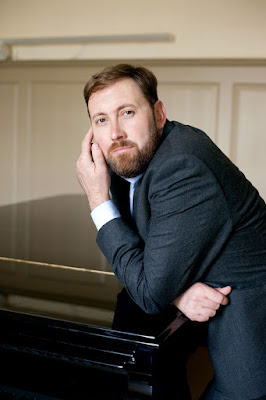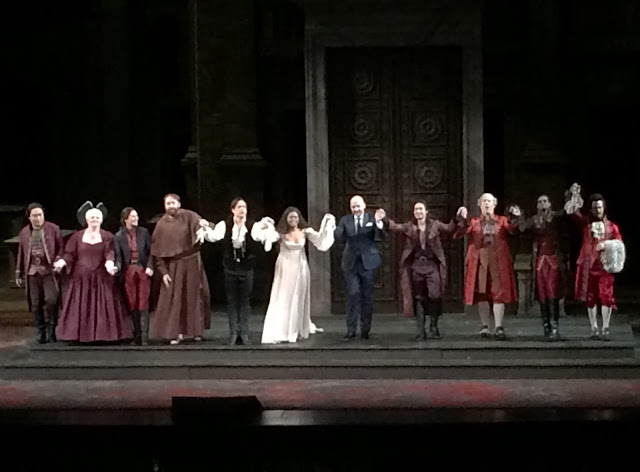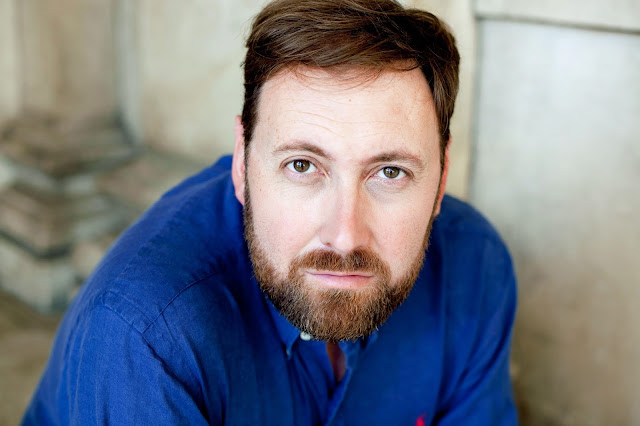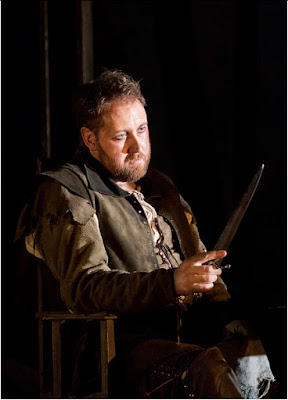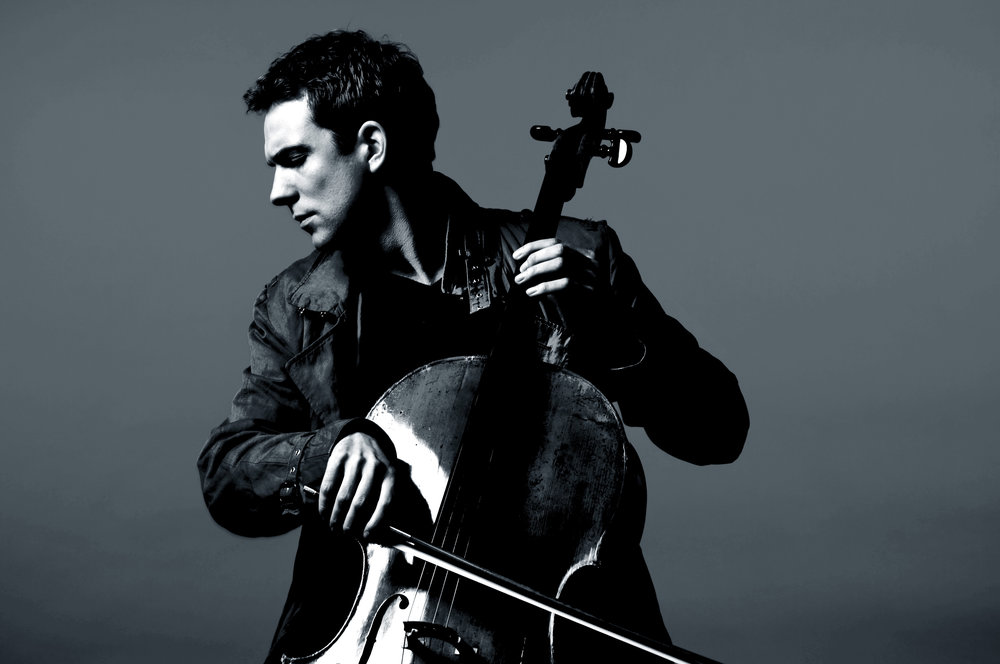
Photo: Manfred Essler – Haenssler Classic
Sometimes the best moments happen when art overrides intellect — or at least, whispers in its ear to simply shut up and enjoy.
That isn’t to say Johannes Moser and the Rundfunk Sinfonieorchester Berlin (RSB), under the baton of Thomas Søndergård, haven’t made a deeply intellectual album. Released on Pentatone last autumn, the work feature two giants of twentieth-century cello repertoire, Lutoslawski’s celebrated cello concerto and Dutilleux’s Tout un monde lointain… (“A whole distant world”). Both works were premiered (at different events) in 1970 by cellist Mstislav Rostropovich. Amidst numerous performances and recordings in the intervening years, there’s something about the Moser/Søndergård/RSB release that completely caught me when I first heard it in Zurich last autumn — there is a shimmering, colorful, and occasionally quite sensuous interplay between orchestra and soloist, qualities which nicely integrate contrasting textures to produce a deeply rewarding listening experience.
To paraphrase Gramophone writer Michael McManus, Witold Lutoslawski’s work was written during his “most avant-garde period” yet simultaneously does not fully belong to it. Taut yet oddly sensuous, the work (which runs roughly twenty-four minutes), with its large orchestration and episodic yet unbroken structure, alternates between the confrontational and conversational, a battle of sorts unfolding between individual (soloist) and state (orchestra). Many have seen this as a strong symbol of the Polish composer’s own highly political history and relationship with authority; his father and uncle were executed in the wake of the Russian revolution, and his brother died in a Siberian labor camp. The composer, who went on to be awarded the UNESCO prize (1959, 1968), himself escaped capture by German soldiers in the Second World War, and later found his work shunned by Soviet authorities for his strong opposition to the artistic ideas connected to Socialist realism. There are battles brewing in this work — between soloist and orchestra, individual and group, energy and dark matter — but they are brightly, fiercely characterized by alternating flashes of aggression, antagonism, acceptance, and the blackest sort of humour.
Dutilleux’s Tout un monde lointain… is dark as well, but in an entirely different way. Based on Charles Baudelaire’s Les fleurs du mal, Dutilleux wrote the piece between 1967 and 1970, and it’s a symbol of the fierce individualism that characterizes much of his hypnotizing sound world. It was with the outbreak of the Second World War, when a residency in Rome abruptly ended, that the composer began to question his place within the wider tradition of French composition; his influences until then had included Ravel and Fauré. Immersion in the music of the Second Viennese School meant creative liberation from rigid French conservatory training, one that never mentioned serialism (much less German composers) — but that isn’t to say Dutilleux was imitative; rather the contrary, in that he set about carving a uniquely singular path for his work, one that still cannot be easily categorized. His cello work reflects the composer’s fastidious approach but also symbolizes his mystical fascinations. In its rich textural orchestrations and lush passages, the cello sings, spins, twists, and turns with and around other instruments, large and small. He told BBC 3 Radio presenter Rob Cowan that Tout un monde lointain… was a favourite among of all his compositions.
Johannes Moser and the RSB capture this intertwining with warmth and vitality, the German-Canadian cellist giving riveting and idiosyncratic readings of each work. His Lutoslawski gleams with moody energy, his tone moving between acid, anxious, angry in his spindly orchestral interactions. Søndergård keeps the prickly texture in check with prancing strings and smartly blanketing brass. The ratcheting tension of the second movement (“Four Episodes”) slides skilfully between a skittish restlessness to a solemn eeriness, with Søndergård keeping watchful control over ominously droning woodwinds as Moser’s cello rises like a call from the wild. Vivid images are presented in the third movement (“Cantilena”), with Moser’s performance conjuring the wild despair of Munsch and his famous, silent scream, Schiele’s spindly, twisting bodies, and Malevitch’s stark shapes, moving in precise, angry formations. This painterly approach is continued with poetic acuity in his reading of Dutilleux’s cello concerto, sumptuously evoking Baudelaire’s dreamlike poetry through its five interconnected movements. The first movement “Enigme” is restless, breathy, the interplay between Moser’s plucked strings and the orchestra’s percussion and woodwind section playful and conversational, while “Houles” (“Surges”), the third movement, swells with strings, brass, and woodwinds, lusciously conjuring lines from the very sensuous poem on which it is based (and from which the entire work gets its title), while simultaneously providing an incredible showcase of Moser’s virtuosity.
Currently the Artist In Focus with the Rundfunk Sinfonieorchester (he’s already performed Walton’s cello concerto with the orchestra this season), Moser has also enjoyed residencies with both the Royal Scottish National Orchestra and the Bournemouth Symphony Orchestra this season. Tonight he’s in Berlin, performing with the orchestra’s cellists at the historic (and decidedly non-traditional) Kühlhaus Berlin. At the end of this month, Moser leads a cello flashmob at the historic Templehof Field, with cellists of all levels invited to join in. This kind of casual engagement seems par for the course for Moser, an artist with a great taste for a variety of artistic expression and exploration.
Hailing from a musical family (his family includes singers and professional musicians), Moser has played with top orchestras including the Berliner Philharmoniker, the London Symphony Orchestra, Symphonieorchester des Bayerischen Rundfunks, Tokyo NHK Symphony, New York Philharmonic, Los Angeles Philharmonic, Chicago Symphony, and the Philadelphia Orchestra, to name just a few. He’s recorded works by Elgar, Tchaikovsky, Dvořák, Lalo, and has also recorded the cello/piano works of Rachmaninoff and Prokofiev with pianist Andrej Korobeinikov (released on Pentatone in 2016). Known as much for his Dvořák (most recently performed with Vasily Petrenko and the Oslo Philharmonic, as well as the Toronto Symphony last year) as for his forays into the work of contemporary composers, Moser has also made education a cornerstone of his creative endeavors, and frequently leads masterclasses in various locales. His commitment to teaching seems inextricably linked to his art, and one comes away from his recordings feeling somehow smarter, less daunted, more inspired — an effect the best artists tend to have.
I wanted to chat with Moser about his teaching, as well as his approach to the instrument, and was keen to explore how he feels about mixing the old and new, working with living composers, and why a so-called “cello swarm” is a good thing for classical music. As you’ll see, Moser is warm, honest, very smart and very approachable — precisely what one experiences in his performances, in other words.
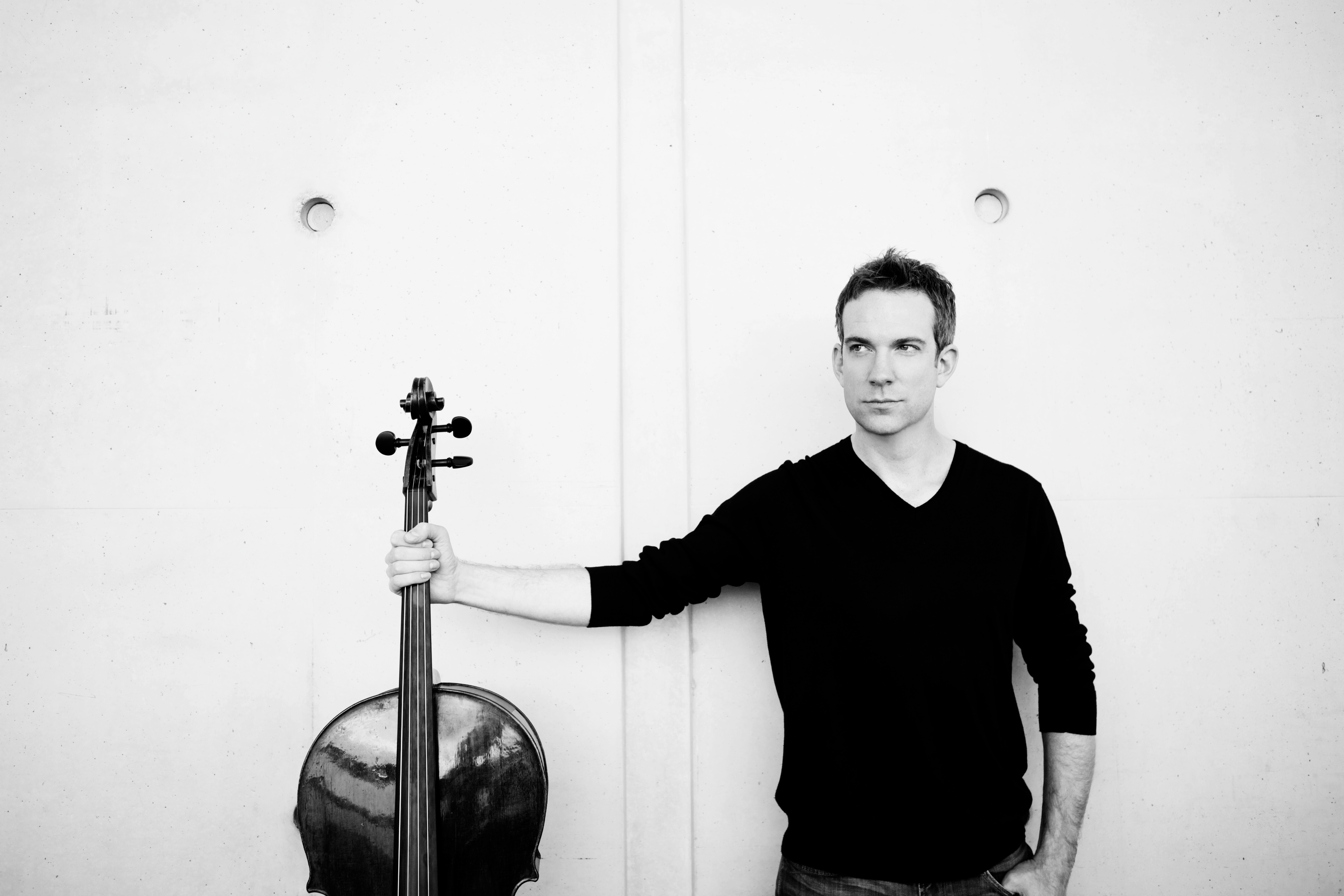
Photo © Sarah Wijzenbeek
What do you think accounts for the cello’s enduring appeal? Those new to classical sometimes start their explorations of instruments with either piano or cello concertos.
I think it’s partly the charm of the instrument and its versatility. And we have had very colorful protagonists over the years; the superstar of course is Yo-yo Ma, who totally transcends the instrument, becoming an ambassador of music and culture, basically. He was so smart in his career to pair the classical repertoire together with the film music and do projects with artists like Bobby McFerrin in the 1990s, to make the instrument accessible, to make it an instrument for everybody. Of course in 20th century more broadly, Rostropovich and du Pré were the people that not only expanded the repertoire, but had moving stories to tell through their (respective) lives, ones which never detached from the cello. I think that helped the popularity of the cello immensely.
There’s also the fact it requires intense physicality to play, one which translates into a very visceral listening experience on the Lutoslawski & Dutilleux Cello Concertos album. How has the experience of those works changed the way you perceive other more so-called “mainstream” cello works?
Every piece of music that you play is giving information on the pieces you are about to play or that you’ve played for years; you get a different perspective. With the Lutoslawski, I‘d say it has taught me very much about the relationship of the cello with the orchestra in terms of not always being amicable partners, but also it is interesting there is drama on stage, that combative element. I think that’s something Lutoslawski, through the narrative of his concerto and through how he wrote for the instrument, mastered it like no one else.
For the Dutilleux, I think it is the closest that a cello concerto comes to very spatial music. Of course it has a structure, but music is also a timeless kind of sound, and if you allow this timelessness to happen on stage, it is quite an experience. Being onstage, your heartbeat is up, your adrenaline is going, your mind is racing 150 miles an hour — but to experience a moment of stillness, of true timelessness, within that rush, is an incomparable feeling. I think these concerti taught me a lot musically but taught me a lot about what it can mean to be onstage; they give you a completely different tool-set of expression, and that expansion of expression is not something you can learn or teach, but something you have to live and experience.
It’s interesting how that idea of stopping time keeps coming up — Thomas Hampson said something similar to me recently — but it takes a lot of work to get there.
Yes!
Some of that work involves teaching — what does it give you as an artist?
The thing is, I always thought touring was energy-consuming, but a day of teaching, my goodness, I’m done, I’m spent! You always have to bring awareness and awakeness and also creativity to the table, because every student is different and I don’t want to have a cookie-cutter approach and I don’t to give everybody the same thing. What it gives me artistically, that’s a fascinating question… because the thing that I felt, and I’m sure you feel the same, is that whenever I walk away from a day of teaching, I feel like I’ve learned so much just by addressing certain topics and certain issues.
And, I feel like by having a shared interest in the cello, I learn as much about music with my students, because we share a common ground; I see them as partners in a development and understanding of music, not necessarily me going into the lesson and having answers. I’m interested in exploring together. Of course, in a masterclass, you have to give a certain amount of information — you can’t just let the student explore and hope they find something meaningful — but I do find with my long-term students, which I have at the University Of Cologne, I can really go on a journey and find unexpected things.
Another thing I do with them that helps me a lot personally is connected to learning a new piece. Right now I’m learning the Enescu Symphonie Concertante, and I’ve given that to two students to learn as well. We learn it together! Obviously it’s great music but they’re also getting very much a hands-on approach on how to learn a new piece of music — I see them as equals and partners, rather than me going in there and spreading neutral wisdom, so to speak.
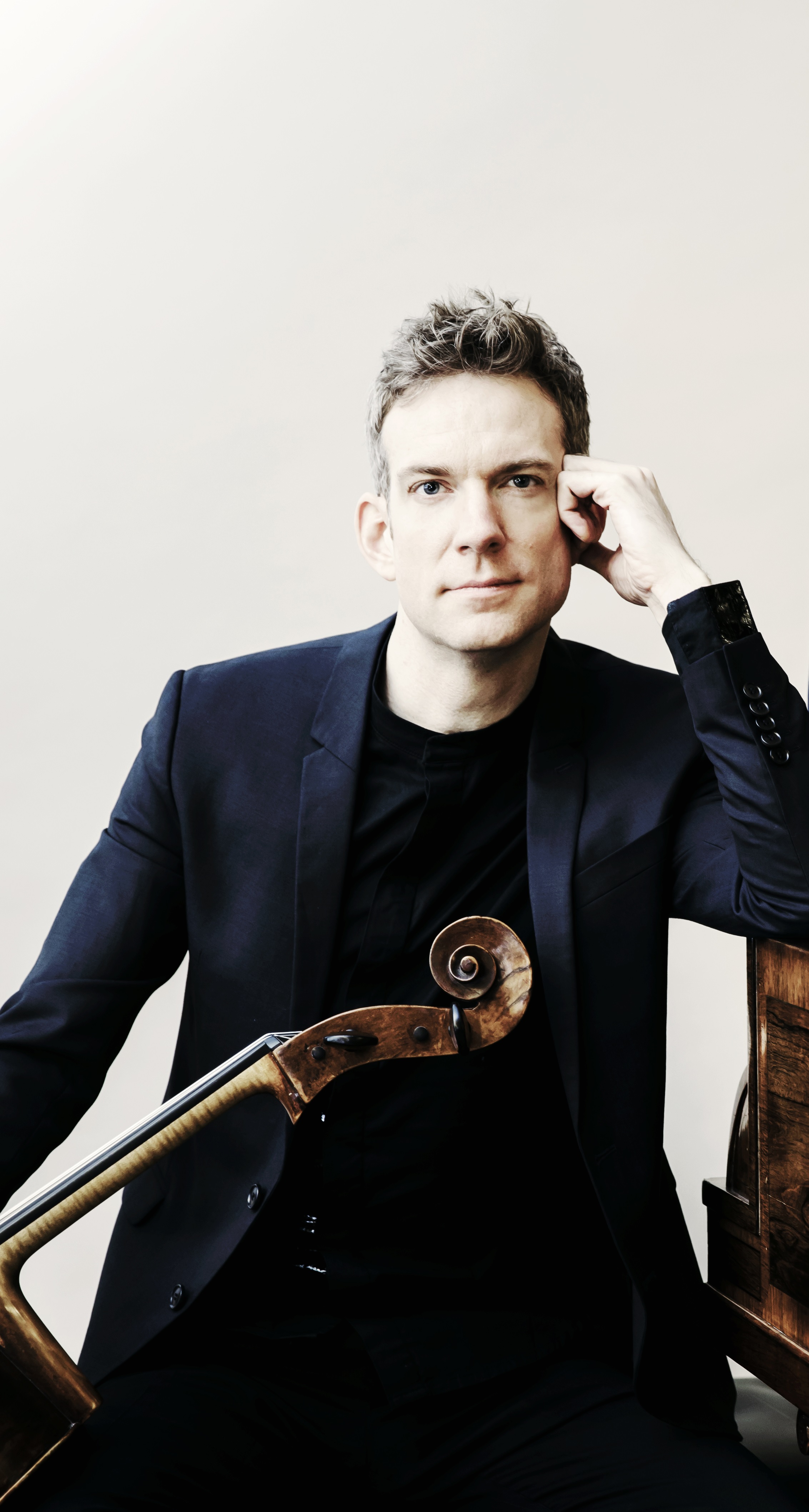
Photo © Sarah Wijzenbeek
One of the things you emphasize in your teaching is the importance of breathing with the music. How much is that influenced by having singers in your family?
I think that’s where it really all comes from. And, I have to confess I am a terrible singer! My mother, for her 50th bday, asked if she could give me a five-minute lesson because I was refusing so much (to sing) — but we had to stop after three minutes. She was laughing so hard! It was not great — there goes my singing career, out the window!
But, I think the fundamental idea of music before music — of breathing in before you speak or breathing in before you play — is something that is often grossly overlooked. I learned from singers and also wind players when I’ve played with them; what I also take, especially from singers, is the connection of words and sound. We come back to the human voice and the art of expression, of exchanging information and emotion, and I think the best education you can get is listening to a lot of singers if you don’t have gold in your throat. It’s really the best. After an afternoon of listening to every from Pavarotti to Thomas Hampson to …
… Elisabeth Schwarzkopf!
Yes, exactly! You get the biggest variety of color mixed with the biggest variety in use of text. It’s a masterclass, and also a joy.
And you can apply it to your work, and also to people you work with. “Music before music” made me think of your work with Jonathan Leshnoff. What’s it like to work with a living composer? Does it change your approach?
Yes and no. I have a mixed feeling about this. First of all, because it came from their mind and their understanding, nobody can tell you better than composers about the bone structure of a piece, and it is often, especially with a melodic instrument like the cello, it is often too easy to play your part, rather than see the bigger picture of architecture.
The downside of working with living composers is that composers are not necessarily the best performers, and are not necessarily the people who understand the art of performance best. My earliest memory of that was when, in 2005 I did my debut with the Chicago Symphony with Boulez; we played the Bernard Rands cello concerto. Before first rehearsal, I worked extensively with Bernard on the piece and he made a lot of adjustment; he toned a lot of the sounds down, he changed a lot of the markings (like from mezzo-forte to piano), and I said, okay! I went onstage at rehearsal, and did exactly as instructed. Halfway through he came running up to the front of the stage and said, “Ignore everything I said! Please perform as you had envisioned this.” It just turned out that he didn’t factor in the hall, he didn’t factor in the orchestra, and he didn’t factor in cancellation of sound. For example, if I play in tandem with a clarinet, it will eat my overtones; the cello, by itself, may sound loud but as soon as you have other instruments in the mix, suddenly your sound can be gone just by the nature of physics. There’s something to be said for experienced performers and bringing that to the table.
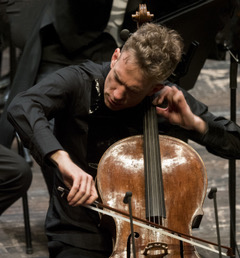
Photo: Daniel Vass
But it is fascinating to me when you see composers play or conduct their own works — we have amazing works of Elgar conducting his own work, we have Shostakovich playing his own music, and Prokofiev, and Rachmaninoff. When I talk to composers who also conduct, most of them say “We have to completely relearn our own pieces!” You would think if you give birth to a piece of music you know it inside out, but they have to relearn it as performers, so they themselves also have to make that connection. It’s a fascinating process for many reasons. I do enjoy working with composers a lot, but I also invite them to trust me as a performer, shall we say.
Part of that trust has also been on the part of audiences who’ve followed you through various sounds and styles; when I listen to your work, there are no lines between Dvořák and Dutilleux. How much do you see yourself as an ambassador for non-standard repertoire?
You need to work up a reputation, and then have people follow you in these adventures. The interesting thing is, once people are in the seats, they mainly love the new stuff, if it’s performed passionately; it’s something that tickles the ear and can bring a lot of unexpected joy. (However) when people see it in the season brochure or outside the hall — for instance, “the complete works of Anton Webern,” of course, that is not going to be a big magnet, because they’re scared, and because maybe they had a lot of bad or mediocre experiences with new music. I would say it’s the first time in history when new music has a crisis, because in the 1960s-1970s-1980s, composers chose to alienate people. I think that stems from our history — I think the post-war generation played a huge role: “After genocide and camps, how can you compose in C major?!” That was the thinking at the time…
… something Adorno expressed in his famous essay.
Yes exactly, and that resonated a lot with the Darmstadt crowd and the people around Boulez, including Stockhausen, so it’s up to composers and performers to regain the trust. There are a lot of fascinating composers from North America and Scandinavia — I think there’s a lot of great music coming from Central Europe too, but those composers from Central Europe need to be aware they cannot completely detach themselves from the listeners, and that is something that I take into account when I chose a composer to work with; I want to know if they’ll be hammering the audience over the head, or taking into account it should be an emotional experience that might be, I wouldn’t say it has to be “enjoyable,” but it definitely something that is sort of touching and moving and grabs you. If you are neutral after an experience, then that’s the biggest failure you can have.
You can’t be neutral playing in the middle of Tempelhofer Field!
Ha, that’s so true! When planned this residency, since I’ve lived so long in Berlin, I thought it would be great to bring as many cellists together as possible, and the orchestra was game. With residencies it’s interesting, because not every kind of project will work in every city; I also just completed one in Glasgow, and it’s absolutely unthinkable to do outdoor events there because it rains so much. Also I don’t know the amateur scene there as well as I know it in Berlin, and I know there’s a huge crowd in Berlin of amateur cellists — the Berlin Phil, very early on, made a lot of cello ensemble concerts and that inspired a lot of people here — so the idea of getting together and playing in large cello ensembles is an idea not uncommon for a Berliner. I’m very excited we’re making this part of the residency.
A few of years back I did a similar thing in Frankfurt; we had a flashmob in front of the opera, and a lot of people showed up and we played together. Just by the reactions I got, I mean musically we can debate if it’s so satisfying, but the fact that music is such a factor in bringing people together and is such a social event, if it goes well… it’s something that I think, well, you can maybe attain that with sports events, but then of course you have the notion of two adversarial parties coming together and there may be alcohol, but a peaceful gathering of making music together is something I absolutely adore.
It’s interesting that the RSB are performing a work like “Les Espaces Acoustiques” by Gerard Grisey, and then eleven days later are holding a cello swarm featuring Bach and Casals and “Somewhere Over The Rainbow” in the middle of a field; it seems like creative programming.
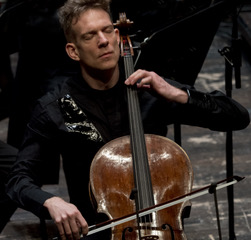
Photo: Daniel Vass
Cultural institutions need to be aware we are not just artistic institutions anymore, but also social institutions; we provide a forum for people to collectively enjoy music. Although there is a lot of debate if classical culture is antiquated or not, I still think one of the biggest miracles of humanity is that 2000 or 3000 people can sit together in silence and listen to sound — that is absolutely mind-blowing and incredible! If we understand this not only as a cultural but also a sociological phenomenon, and a sociological success story, then we cannot just stop at making music but also we need to be all-inclusive, and that’s where these community events come in. Hopefully we’ll have sunshine!


